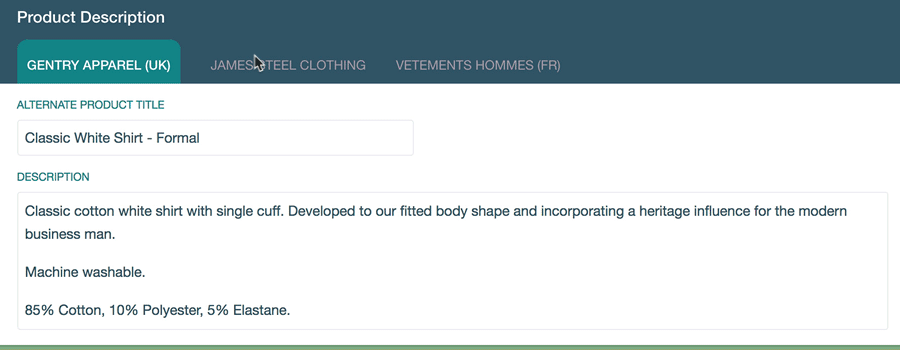Whether you’re an eCommerce business that is about to start trading, or you have been scaling up from a side business to a full time £300k turnover operation, there are certain essentials needed for running a successful eCommerce business. And we’re not talking about 1000 Instagram followers.
We’re talking infrastructure, we’re talking logistics and finance. We’re talking about the business side of things. Here’s 9 areas we consider essential to running a successful eCommerce company:
1 – Financial Clarity

Let’s start with money, after all that’s a big reason you’re doing this, and a huge factor in whether you will continue. You need absolute certainty and clarity over your costs:
- Buying price per SKU
- Buying prices if you bought at greater volumes, or from alternate suppliers
- Detailed monthly/annual costs of running the business – rent, electricity, staff wages (gross) and PAYE, Workplace Pensions costs, stationery, bank charges, marketing budgets etc
And no, don’t leave it all to the Accountant. They aren’t wholly focussed on your eCommerce business, and you don’t want any nasty surprises at Accounts year end.
2 – Product Data

This is your backbone.
You’re not a marketer anymore, or an inventor. You’re an SKU seller and you need to know – and share – everything.
If a CSV spreadsheet is your starting point there should be columns for:
- Product Title
- Description
- Unique SKU
- Recognised EAN, UPC or manufacturer part number.
- Brand per SKU
- High Quality image (not stolen either, unless you can get from the manufacturer)
- Weight, cost to ship that weight on Next Day, 2-3 Day, and 7 day delivery
- Awareness of Competitor Pricing
If you want to sell on Amazon, eBay or even multiple of your own branded websites, it is a requirement to have the above data. Ignore the weight and your courier costs could spiral, ignore the EANs and you’re not selling on Amazon.
Period.
3 – Warehouse Management

So you keep our stock in your garage at home? Maybe you’ve grown to hire out a unit somewhere?
You still need detail.
The best, fastest growing online sellers are those who know exactly how much stock they have of each SKU (and variation e.g. colour). They also know when that stock was bought, it’s likely depreciation and how long it’s been sitting on the shelf.
If you’re serious about trading online, it’s far easier to get these scenarios sorted out early on, and not when you have 700 orders a day and 20 customer service emails to answer.
If your items are barcoded then it’s a simple step to install a scanner on your smartphone and transfer that data to your website via an API.
It may sound complicated, but it really isn’t.
4 – Legals

Wow.
We’ve sent plenty of business bitten by the legals because they can “sort it out later”.
Privacy policy templates don’t really cut it when someone is making a complaint about your business, so you need to spend proper time on those and the other terms of business required.
Have you got Delivery T&Cs?
What happens if an item is damaged?
If you are a manufacturer, you need to read up on Intellectual Property and trademarks so that someone doesn’t steal your business from under your nose.
Even your website designer should come complete with a contract. It should include what happens if the website isn’t completed to standard, who owns the design and content after final payment (IP Assignment), and what fees there are for updates.
eCommerce developments are never one hit wonders – they evolve every month – and you need to know your Hosting SLA, your designer’s hourly rate, and whether all aspects of your data handling is GDPR compliant.
5 – Selling & Distribution Costs

Many online retailers don’t appreciate the savings that can be made by conducting a costs review every 6 months.
Firstly – the payment gateway world is incredibly competitive at the moment as they scramble for market share. Your PayPal 2.2% + 30p rate can easily be cut to a far more profitable 1.9% no fee, if you shop around.
Secondly – review your shipping costs. Aggregators like Parcel Station and ParcelHub pass on the amazing volume discounted rates they get from Hermes, DPD and DHL if you sign up. Stop defaulting to Royal Mail or whoever else your mate uses and get researching. Every 20p matters as you grow.
Thirdly – take a look at your packaging. Buying in bulk (to cover the next 12 months) from wholesalers like ParcelPack or Transpack could save you as much as 10%.
We’ve said it already but – every 20p matters.
6 – Care about your Brand

How people view your company is frequently the decider between a sale or an abandoned basket.
Do you have a clear returns policy?
Are your photos of high quality, showing good detail?
Do you have a set of values and quality standards that invoke real trust in your customer base?
Whilst you’re cutting back on distribution costs, you can go the other way with your branding – but never fall below a minimum standard that you define. Indeed you may feel that improving the customers perception of your brand means repeat sales or higher margins. Bespoke packaging from PackHelp has proven to raise perceptions and increase rapport as each customer feels more loved up.
Perhaps you’ve considered the idea of owning multiple brands, but think the work would be too much? Well modern technology had moved forward as we explain the benefits of a multi brand approach here.
7 – Customer Service

The more you sell, the more phone calls and emails you will get. Fact.
It’s the nature of the beast.
If you’re a small, lean operation then you’ll want to minimise these interruptions (or are they opportunities to upsell?!). Creating better product descriptions or even a comments/community area where customers can ask each other can be a great long term time saver for any eCommerce business.
Alternatively you could use a call answering service like Mi-Call who will gladly answer 90% of your questions with ease, saving you an incredible amount of time and thus money.
8 – Great, Effective Marketing

This is the back story to our business so we certainly know and appreciate how important it is.
Here we want to emphasise “effective“.
Begin spreading your name via all possible channels from SEO rankings to Adwords, from social networks to email marketing – but take time every 3 months to review the statistics. If you know that your CPA is lower for emails to current customers then your strategy should be stronger Mailchimp campaigns.
Yet if you find Facebook advertising to women aged 35-54, or getting a blog post featured on a partner site is that activity producing orders (and traffic) then go for it. Just don’t think that a tweet a day is “Marketing”….
And don’t forget simple but highly effective tactics like in-box leaflets.
“Coupon code as I open my goodies? Yes please!”
9 – Secure, scaleable software

We thought we’d save our own pitch for the end, but it’s nonetheless the most important.
- You are an online business.
- Everything you do comes back to the website.
- …So can you really afford to skimp and save on your web development project?
So many hosted platforms like Shopify, EKM or Lightspeed, limit your functionality and thus your ability to grow. Platforms like Magento demand developers who cost £800/day and even then sites can grind slowly and ruin the customer experience.
We listened to the stresses of Gymshark as we created Shopit. But as a growing eCommerce business, you can’t commit to £24k/year for Shopify Plus before a sale is made can you? And you haven’t got time to replatform every 2 years as you scale up.
This is precisely why Shopit was built as a Pay as you Grow platform, offering full order, inventory and product functionality from day one. And when that scalability also allows you to add multiple sites working from the same database, it’s the clearer choice for growing businesses.
Start as you mean to go on. Because we’ve made it economical to do so.

Annabel is one of the longest serving Shopit team members and is front of house contact for many customers.
Her skills in onboarding and developing clients is second to none